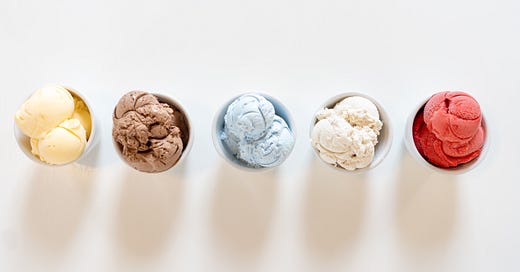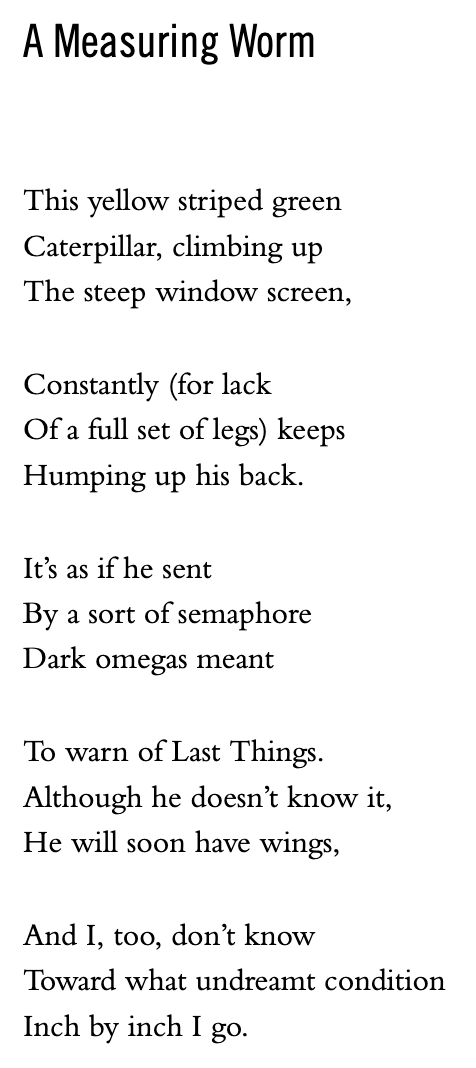In February of 2020 I was the most anxious I’ve ever been.
I had a one-year-old daughter and we had started talking about a second, I was five months into a twelve month book contract (with not much to show for it), and I was one month into my startup. Things were - uncertain.
In the middle of so many things, I felt like I didn’t have a place for a solid foothold. My body was rebelling against me, my creativity was zapped, and I was stuck in a panicky sort of rumination on the simple idea - what if I’m wrong?
What if I can’t write this book? What if I can’t grow a company? What if doing these things I’ve always dreamed about doing makes me so anxious I become a distant, angry dad?
At one point I remember saying to my co-founder, “I just want to know how this ends.” In all my anxiety, I was less concerned about whether we failed, or what we needed to do to succeed, and just cast myself off into the future wanting desperately to know what would happen.
Here’s a thought I’ve encountered in my work quite frequently in the past couple of weeks: “I can’t imagine myself [doing (not doing) this thing].”
Examples:
I can’t imagine myself leaving this job.
I can’t imagine myself not starting another company.
I can’t imagine myself finding something as engaging to do with my time as that was.
I can’t imagine myself not being a lawyer.
What’s interesting to me about this logic is the imagination side of it is almost never questioned.
Deciding to remain in a certain job because you can’t imagine yourself not in that job is as much a failure of imagination as it is of decision-making.
Famed psychologists Daniel Kahneman and Amos Tverky called this the simulation heuristic. Our decision making is biased toward information that we can more easily imagine. It’s similar to the availability heuristic, which shows our decisions are biased toward information that we can more readily recall in the moment.
Taken together, these tendencies suggest that our imagination of what’s possible in our professional lives is woefully myopic.
So, if I’m a lawyer and don’t want to be, the other paths I’ll consider are likely those I’ve seen others take before (and recently) and those I can easily imagine myself taking. I won’t consider, for example, that it could be possible to leave law practice and start a wildly successful ice cream company.
I think of these types of choices - big decisions to try something new or different or to enter into a transition with an unknown outcome - as deciding to opt into a sort of professional chemical change.
A chemical change occurs when the composition of a substance is changed, which requires the breaking and forming of chemical bonds during a chemical reaction. This results in the rearranging of atoms in substances to form the products of a chemical reaction, which are brand new molecules that cannot be easily reverted back to their original state.
The lawyer can leave to start a company, but she can’t go back to being a lawyer who hasn’t started a company. The change cannot be reverted back to its original state.
Sure, she can go back to practicing law, but with her she’ll bring a raft of experiences and know-how she couldn’t possibly have gained otherwise.
What’s hard about these choices is that we know intuitively that they’re indelible; that they will change us in ways both big and small that we can’t really imagine, and that can’t be undone.
But this is happening all the time anyway. The choice to continue on in the same way is a choice too, it just happens to be easier to imagine.
If you’re doing your math right, then you know that in February of 2020 another contributor to The Time of Maximum Anxiety was my fear that COVID was coming for us.
Oddly, when it did and the country went into lockdown, all of my professional anxiety dissipated. Here was a real existential threat knocking me out of my future trip and forcing me to focus on the present.
In retrospect - COVID discussion aside - it helped me learn that the only thing I could really focus on was the present anyway; make the best decisions I could with the information and time available, and just keep going. “Global pandemic” didn’t exactly figure into any of my parenting/writing/startup plans - I could never have imagined such a turn of events.
But how possible is it, really, to imagine the future anyway?
I’ll leave you this week with one of my favorite poems by Richard Wilbur, published in The New Yorker in 2008:
Apply this thinking:
In what area of your work/life might a little more imagination unlock new ideas and possibilities?






